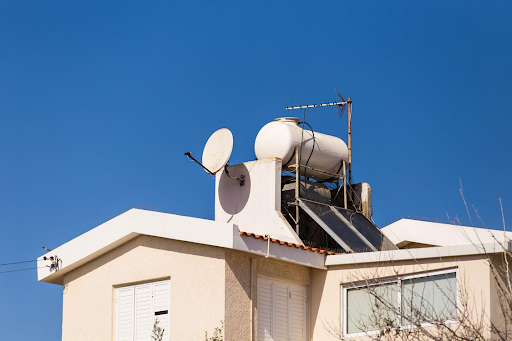Most people are beginning to realize that we need to take action to protect the planet and reduce our carbon emissions. One of the best ways to do this is by switching to renewable energy sources whenever possible. This isn’t always an option, but fortunately, when it comes to heating the water in our homes, there is an eco-friendly solution: solar hot water systems. What’s more, is that these systems can also help you save a ton of money on your utility bills.
If you’re interested in learning more, then keep reading for everything you need to know about solar hot water systems and how they work.
What is a Solar Hot Water System?
Solar hot water systems are devices that use the energy from the sun to heat water which can then be used in our homes. They are sometimes referred to as solar thermal systems or solar water heaters. These systems collect solar energy, usually through a series of solar panels that are installed on the roof. The collected energy flows through a series of pipes to a storage tank in the home. This hot water can then be used to heat faucets, showers, and appliances as required.
How Do Solar Hot Water Systems Work?
Solar water heaters have a few different design elements, but the common theme is that they collect and store solar energy in order to heat water later. The most common design for these systems is an evacuated tube solar water heater, which is made up of two main components: solar collectors and a storage tank.
Solar collectors are typically made of insulated panels through which water flows. As the water in the panels is heated by the sun’s rays, it is then diverted to the storage tank and subsequently to your home’s faucets and appliances.
Pros & Cons
Solar hot water systems have a number of advantages and disadvantages. We’ll start with the advantages. Solar hot water systems are very energy efficient, have no operating costs, and provide a reliable source of hot water for the home. They are also durable and have a lifespan of 20–25 years. Another big advantage is that a solar system can be installed on an existing hot water system.
Solar systems also have a few disadvantages. Initial costs are usually higher than a standard system, and they require a certain amount of sunshine. If you live in a very sunny area, this won’t be a problem. However, if you live in an area that’s not very sunny, you may not be able to get enough heat to make the system worthwhile.
Solar hot water systems are a great way to save energy and money. They are very efficient and have no operating costs. It is important to note that these systems perform best in sunny, warm climates. If you live in such a climate, a solar hot water system is an excellent choice. For more information, or to find out what type of hot water system works best for you, be sure to consult with a licensed plumber.

